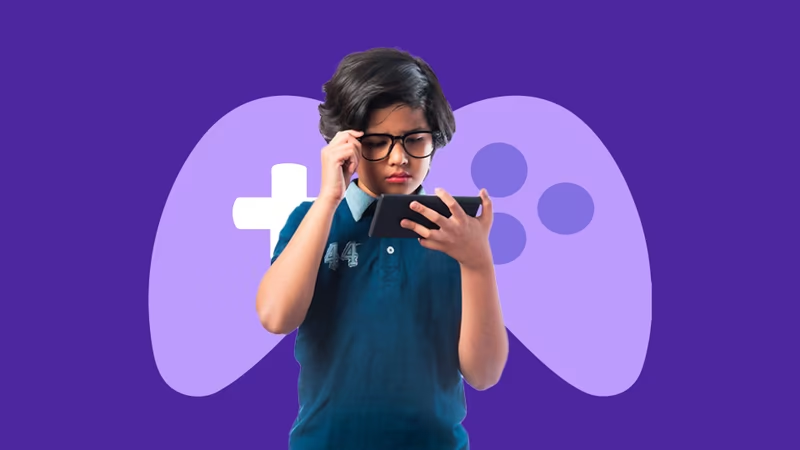Do you remember that feeling of being thrown into the deep end when it came to managing your own finances?
While this feeling is too relatable amongst most young adults, it shouldn’t be!
With the help of technology, young adults and children are able to equip themselves with financial knowledge to navigate the ever-changing financial landscape with ease.
Why is financial literacy important for students?
Financial literacy is an essential life skill that empowers individuals to make informed decisions about their money and secure their financial well-being.
While financial literacy is crucial for everyone, it is essential to introduce and instill these concepts in young students from an early age.
Teaching financial literacy to students at a young age lays a strong foundation for their future financial well-being.
It helps them develop critical thinking skills, decision-making abilities, and a sense of responsibility towards money.
How do you teach financial literacy in a fun way?
While there are tons of books on financial literacy, a great way to teach financial literacy to students is through games and other interactive activities.
With the advent of technology, financial literacy games for students are better than ever, with games teaching children as young as 4 or 5 about the importance of money.
Interactive financial literacy activities for students make learning enjoyable and relatable. They bring real-life financial scenarios into the classroom or home environment, enabling students to apply their knowledge in a safe and controlled setting.
Through these games, students can make mistakes, learn from them, and understand the consequences of their financial decisions without facing real-world risks.
In this article, we will discuss 6 money management games for students that teach them how to take control of their own money in a fun and interactive way.
While we will focus on online money management games for students, we have also included offline games and games for young adults to play that give youth a hands-on feel of managing their own money.
Immersive Offline Games
1. Counting with Coins
(Age: 5 - 10)
Counting with Coins is a simple game designed for young children and focuses on basic money skills.
Counting coins is usually one of the first financial literacy games for the classroom to help them understand money, identify and count different coins, understand their values, and practice simple calculations.
This game helps build a strong foundation in recognizing currency and introduces the concept of basic addition and subtraction with money.
2. Fun with Budgeting
(Age: 10 - 14)
Fun with Budgeting is another simple financial literacy game for students to gain hands-on experience in dealing with money.
This practical money skills game involves parents/teachers giving their children a fixed budget to purchase groceries from a shopping list, teaching them the importance of budgeting and managing money responsibly.
As an added gratification, students can be given additional money to spend on their own; allowing them to choose their own treats.
Through engaging gameplay, students learn how to allocate their income wisely, make informed spending decisions, and prioritize their expenses. This game encourages critical thinking, problem-solving, and developing an understanding of financial trade-offs.
Online Financial Games for Students
3. Financial Football
(Age: 11 - 18)
Financial Football combines the excitement of a sports game with financial education and is one of the best financial games for elementary students and high school students alike.
Players answer money-related questions and advance on the field, aiming to score touchdowns.
The game covers a range of financial topics, including budgeting, saving, investing, and credit. Financial Football enhances students' knowledge of personal finance while promoting teamwork and strategic thinking.
4. Money Magic
(Age: 14 - 18)
Money Magic is one of the best financial literacy games for students as it offers a comprehensive understanding of personal finance concepts and helps with teaching your children financial literacy.
Created by NGPF (Next Gen Personal Finance), this game allows players to control a main character, Enzo and help balance short-term gratifications with long-term needs.
This game explores real-life financial scenarios, such as managing income, expenses, and debt. Students make financial decisions and witness the consequences of their choices in a simulated environment.
5. Stock Market Game
(Age: 14 - 18)
If you have ever wondered “How do you integrate financial literacy into your students?” then the stock market game is one of the best financial literacy games for the classroom.
This game introduces students to the world of investing and the stock market.
Participants learn how to research companies, analyze stock performance, and make informed investment decisions.
By simulating the experience of trading stocks, students gain valuable insights into risk management, financial markets, and the importance of diversification.
The game promotes analytical thinking, strategic decision-making, and an understanding of economic trends.
Games for Young Adults
6. Money Talks
Age: 16 - 24
Money Talks is one of the best financial literacy games for high school students as it focuses on real-life financial scenarios they may encounter as they transition to independence.
This interactive game covers topics like budgeting, student loans, credit cards, and financial planning for the future. Students navigate through different financial challenges and make informed choices that impact their financial well-being.
Money Talks equips you with the practical skills, knowledge, and financial literacy to keep you out of any financial crisis.
Takeaway
Incorporating interactive financial literacy games for students into the education system is crucial to empower young minds with the necessary skills and knowledge to navigate their financial journeys successfully.
By making financial literacy engaging and accessible, we can inspire a generation of financially responsible individuals who are equipped to make sound financial decisions, build strong foundations for their futures, and achieve their goals.










